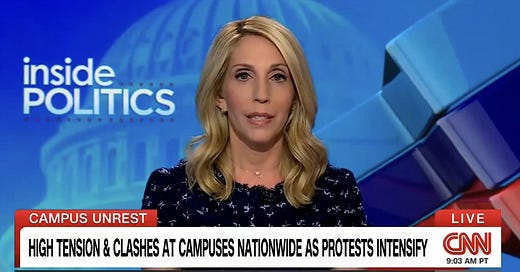
Vox Media is Getting Ahead of the Recession By Laying Staffers Off Now
They're not even waiting for a downturn to hit anymore.
Typically an economic recession is bad news for journalists. This is because of many things involving the economy, a phenomenon I will not pretend to understand. It is also bad news for every industry, but in one as plagued as journalism, any hint of a “stock downturn” or “inflation” represents a vague existential worry for anyone employed by a digital media company, which have been known to fire people for far less than the whims of the market.
Today, Vox media got ahead of the game—always appreciated in this fast moving world!—by firing 39 people from its editorial, sales, and recruiting divisions, including at least two writers from the recently-acquired lifestyle site Thrillist.
There are, I’m sure, a whole list of justifications for this. Vox recently merged with or acquired New York and all of its associated properties as well as Group Nine, which encompasses Thrillist and animal-click site The Dodo. In a memo to staffers obtained by CNBC, CEO Jim Bankoff says that the layoffs are “under 2 percent of the company.” Damn. Well that must make the 2 percent that just lost their jobs feel better. I’m sure that some of the positions were redundant, that after the merger these were the consultant-approved cost-cutting measures that will surely make it so Vox continues to turn a profit or generate value for shareholders or who gives a shit.
Bankoff also wrote this gibberish in the memo:
“The current economic conditions are impacting companies like ours in multiple ways, with supply chain issues reducing marketing and advertising budgets across industries and economic pressures changing the ways that consumers spend. Our aim is to get ahead of greater uncertainty by making difficult but important decisions to pare back on initiatives that are lower priority or have lower staffing needs in the current climate.”
It’s also worth noting that Bankoff promised there wouldn’t be any more layoffs because of the merger months ago. I guess these weren’t because of the merger, they were because of the recession, which we’re already in but not officially already in.


I have written so many of these blogs over the years. I have watched so many talented people that I know and so many others that I don’t know go back into the whirlpool of freelance writing or slowly wash out of the industry. Some of them swim and find other jobs. Some of them end up much happier no longer doing this stupid profession. What never changes is the reasons that they are the first ones to suffer: that the CEOs are just playing numbers games in an industry that they clearly do not understand, trying one failing business model after another and letting their employees take the fall. Now it seems they’re not even trying to keep things afloat—they’re kicking out the lower decks before the ship even takes on water. The number of lifeboats is shrinking—your only hope at this point is to get picked up by another one of the mega-conglomerate ships passing by. If you score a job at the Times or the Post, you’ve made it. Anywhere else, you will spend the rest of your life dodging icebergs, working for captains that will never, ever go down with their ship.


















Greenwell’s article proves prescient once more:
https://deadspin.com/the-adults-in-the-room-1837487584.
Granted, I am an environmental scientist and don't have the background/training, but can anyone explain how "...supply chain issues reduce advertising and marketing budgets..."? I don't see the cause-and-effect here. Does P&O control online ad buys? Does Maersk determine with whom conference calls will be held? I don't get this. The best I can come up with is...Sunday paper coupon inserts that are printed in far away lands?